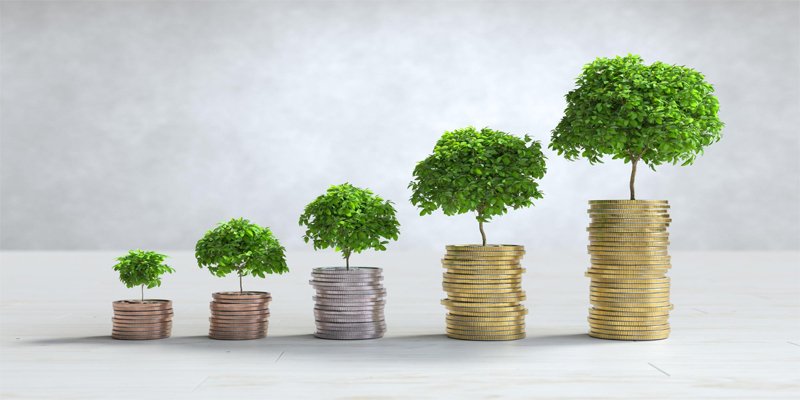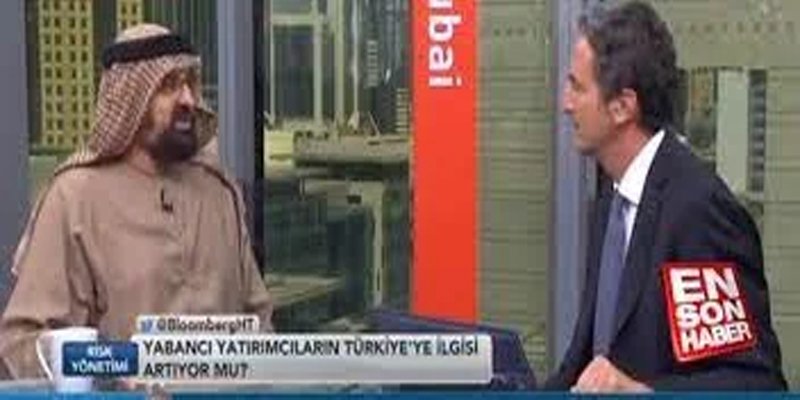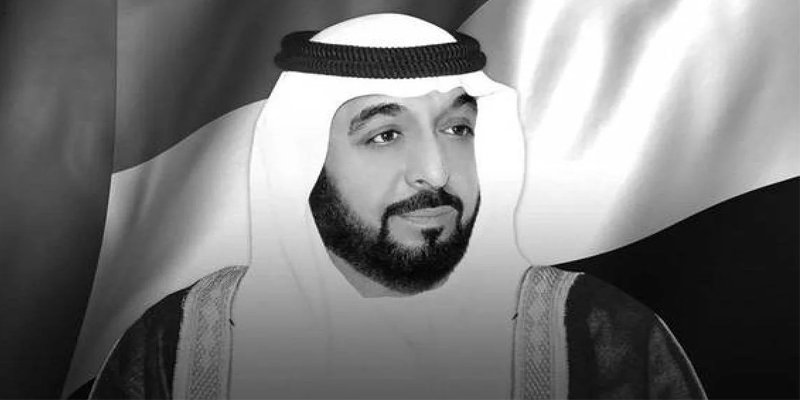- Jan 23, 2024
investments
To understand investments in general terms, let us start with a basic question. Why did you come to college? Surely you could do other things with your money and time, such as work, travel, and so on. But because you chose to go to college means that you have some expectations later in life (after you graduate). You expect to earn a higher salary to achieve a higher standard of living or both. Therefore, you sacrifice money and other resources today for (hopefully) more money (or wealth) tomorrow. In a broad sense, this sacrifice you currently make for future returns is called an investment. Stated differently, you are investing in your future by going to college today. This definition of investment involves several elements worthy of special mention. First, you are spending time and money (or resources in general). Your resources are scarce and thus valuable. Investments deal with the efficient management of your money (or financial wealth) today in hopes of receiving more money (or returns) in the future.
The Definition of Investment
Investment is defined as the commitment of current financial resources to achieve higher gains in the future. It deals with what are called uncertainty domains. From this definition, the importance of time and future arises as they are two important elements in investment. Hence, the information that may help shape a vision about the levels of certainty in the status of investment in the future is significant. From an economic perspective, investment and saving are different, saving is known as the total earnings that are not spent on consumption, whether invested to achieve higher returns or not. Consumption is defined as one’s total expenditure on goods and services that are used to satisfy his needs during a particular period. The values of investment or saving, as well as consumption, can be determined at the macroeconomic level, or at the individual level, through different statistical methods.Investment in UAE
The UAE is the ideal investment destination, as it provides an ideal business environment for investors and entrepreneurs, and excellent infrastructure facilities, supported by professional expertise and personal services, which give the country a competitive advantage over other countries. The UAE has many advantages that make it an incubator environment for investments:
Economic stability
The UAE is ranked 25th among the most competitive economies globally, according to the Global Competitiveness Report 2019, and is also ranked first in the Middle East region. It works to strengthen this position by diversifying its national income. The economic stability of the UAE is based on a number of features, including:
1-Strategic location.
2-Strong financial reserves.
3-Large sovereign wealth funds.
4-Established and solid international relations.
5-Growing government spending on infrastructure, digital transformation, and innovation.
6-An open government policy for economic diversification.
7-Multidisciplinary free zones.
8-Increase foreign direct investment.
Ease of doing business
The UAE ranks 16th in the world in ease of doing business, according to the World Bank 2020 report. The report shows the country’s position among the top ten countries on five of the report’s ten axes:
1- First place in the world in the “Electricity Delivery” axis.
2- Third place globally in the “Dealing with Building Permits” axis.
3- Ninth place globally on the “Contract Enforcement” axis.
4-Tenth place globally in the “Property Registration” axis.
Diversity of business facilities
The UAE offers great flexibility to do business anywhere in the country. Places for doing business include free zones, industrial zones, commercial facilities, etc. There are more than 45 free zones in the country, allowing 100% ownership of foreign investment locally. The economic development departments within the country allow investors full ownership (100%) of their investments in 122 activities and 13 economic sectors. The country also provides modern industrial and commercial business centers.
Skilled labor
The cadres and public forces in the UAE are among the most efficient and skilled at work in the world, and the cultural diversity of the country’s population contributes to enhancing the productivity and innovation of this workforce. The UAE also seeks to be the first incubator of competencies, skilled labor, and human capital talent in vital and economic sectors.
Investment incentives
The UAE offers many investment incentives for entrepreneurs:
1- Full ownership (100%) of investments in free zones.
2- Full ownership (100%) of investments in 122 activities and 13 sectors within the country.
3- A return of up to 100% of profits.
4- A flexible visa system that allows the residence visa to be renewed every 10 years.
5- A strong banking system in the country, with high levels of liquidity, and government support for the banking sector.
6-There are no restrictions on foreign currency conversion.
7- Great value of the currency and complete freedom to exchange it for other currencies without restrictions.
8- Low inflation rate.
9- Customs tariffs fall between 0 and 5% for almost all goods.
Open economy
The UAE encourages private sector growth and competition and implements legislation and laws that prohibit monopoly. The UAE has strong relations with major trade organizations at the regional and international levels. The UAE also has membership in international organizations, as it: 1- Member of the World Trade Organization since 1996.
2- A member of the Greater Arab Free Trade Area (GAFTA), in which all Gulf Cooperation Council countries are members.
3- It has concluded free trade agreements with Singapore and European free trade areas.
4- It cooperates with the Gulf Cooperation Council countries to conclude free trade agreements with the European Union, Japan, China, India, Pakistan, Turkey, Australia, South Korea, and the Mercosur bloc, which includes Brazil, Argentina, Uruguay, and Paraguay.
Political stability
The UAE is distinguished by its solid political stability and its diplomatic policy that is open to all countries of the world. The UAE has more than 100 diplomatic missions abroad and hosts about 200 foreign missions on its territory, as they:
1- A member of the Cooperation Council for the Arab Gulf States, the Arab League, and the United Nations and its institutions.
2- The third safest country in the region, according to the 2021 Global Peace Index (in English), issued by the Institute for Peace and Economics, a research center based in New York.
Social stability
The UAE is considered a safe place to live and invest, where the values of tolerance, respect for others, and cultural diversity prevail. The UAE ranked first in the Arab world in the general index of the World Happiness Report 2020, especially since the country:
1- It was appointed a Minister of Tolerance and launched the Year of Tolerance and the National Program for Tolerance.
2- It passed legislation to combat racial discrimination and hatred.
3- It hosted a meeting on human fellowship, with the aim of promoting the values of dialogue and coexistence among human beings.
4- Legislation was passed to support vulnerable societal groups in the country.
The different types of investment
Investing can seem complicated. After all, there are many different things you can choose to put your money into, like shares, fixed-income securities, property, and cash. This factsheet looks at the main investments that ADIG puts your money into, with an explanation of what each means and how it works.
1- Shares
A share is exactly what the name implies, a share in a company. As a shareholder, you own part of the Company, including its assets. You are also entitled to a share of the profits. If you own the shares directly, this may be paid directly to you in the form of a dividend, normally distributed twice a year. As well as sharing the profits, people also invest in shares to make money from changes in the share price. Share prices are quoted on the stock market. The share price is not set by an authority or organization in the way that the price of a bottle of milk a shop sets. Instead, it represents the amount that someone is prepared to pay for that share. The price you see quoted is typically the last price that an investor paid for that share. As the share price rises, so will the value of your investment, although if the share price falls the value of your investment falls with it. To convert your shares back into cash, you have to sell them to someone else in the stock market. The price you get depends on a lot of things, such as what other investors think the future value of the share is likely to be. Owning certain types of shares means you can also have a say in how that company is run.
2- Fixed-income securities (gilts and bonds)
A fixed-income security is a type of loan. Like any loan, it has a repayment date and charges interest. They are used by governments or companies to raise money in the same way that you might borrow money from the bank to buy a car, a house, or some other large purchase. Bonds usually pay regular interest and are repaid in full on the repayment date. This means they can be useful for managers of investment funds to control income within the fund. Bonds are often bought and sold after they have been issued but before they are due to be repaid. A seller might decide they need their money back before the repayment date, and a buyer might want the regular income that the interest payments bring.
3- Property
A lot of people invest in property, whether it’s the value of a family home or buying a second property to rent out. It’s been a very profitable type of investment over the last 10 years or so, but direct property investment of this sort can be quite risky and hard to cash in if the property market falls. Fund managers also invest in property. They won’t often buy properties directly, although they might do so depending on the nature of their investment fund. More often, they will invest in companies that manage properties. They might also invest in other funds that specialize in property investing, known as real estate investment trusts (REITs).
4- Commodities
A commodity is a natural resource that can be processed and sold. Commodities that are tracked in the financial markets include agricultural goods, metals, energy, and minerals, among others. There are two general categories of commodities – soft and hard commodities. Soft commodities are typically grown, whereas hard commodities are usually mined or extracted. There are several ways to consider investing in commodities. One way is to purchase varying amounts of physical raw commodities. This isn’t the most favorable option for institutional investors, as you can invest by using futures contracts.
A future contract is an agreement between two parties to exchange, at some fixed future date, a given quantity of a commodity for a price defined when the contract is finalized. Futures contracts do not trade in shares as stocks do. Rather, they trade in standardized contracts through an exchange. This is known as a future exchange. Each futures contract has a standard size that the futures have set exchange on which it trades. Another way to gain exposure to commodities is through mixed equity and futures investment funds. These funds usually invest in a variety of commodities as well as commodity-related businesses. For instance, a fund could own equity shares in companies involved in storage, machinery, or distribution while also holding future contracts in wood, coffee, and iron.
Liquidity funds (cash)
Most investment funds have an allocation to cash. What cash means in this context is closer to the types of fixed-interest savings you might know about from your bank or organizations such as National Savings and Investment. These types of investments are also known as money markets or liquidity funds. Liquidity means how easy it is to sell a particular asset. These are called liquidity funds because they are very easy to convert to cash when the fund manager needs it. They carry very little investment risk, as they always pay a set amount, but they can be subject to inflation risk. Liquidity funds have two uses in an investment fund. Firstly, they can be used to protect the value of your money when other assets – such as shares or bonds – are behaving in an unpredictable way. At these times, the manager will put a larger proportion of the money into investments that have a guaranteed return. Secondly, they form a reserve from which the manager can buy other types of assets and payout to investors when they want their money back.
Private Credit
Private credit is a type of loan. Unlike gilts and bonds, which are bought and sold via public stock markets, private credit is negotiated directly between the investor and the borrower. While the word ‘private’ refers to the type of investment, the borrower doesn’t have to be a private company. Loans can be raised by private companies, public companies, corporate groups, subsidiaries of companies, or even entities that are specifically set up to finance projects like building shopping centers, apartment buildings, or wind farms, or developing new technologies like artificial intelligence (AI) or blockchain.
Golden rules of investing
Pay off your debts first — pay off any loans, like a credit card or personal loan, before you invest.
Have emergency savings — aim to have enough set aside to cover three months’ expenses, so you won’t have to sell an investment if you need cash quickly.
Develop an investing plan — define your financial goals, risk tolerance, and investment time frame.
Research different asset classes — understand the risks and returns, and how they can help you reach your financial goals.
Diversify your investments — spread your money across and within asset classes to lower your portfolio’s risk.
Keep track of your investments — review them regularly and make sure you’re on track.
About Abu Dhabi Investment Group (ADIG)
The Abu Dhabi Investment Group started its first launch from the heart of Abu Dhabi in 1968, at the hands of its founder “Rashid bin Aweidha Al Qubaisi”, to be today on the list of leading Emirati companies in providing the best banking, and financial, investment, and insurance services. Investing more than 50 years of experience, the efficiency of our human cadres, and the best strategies & effective economic solutions as a solid foundation on which we build a solid and long-term relationship of trust with our customers and partners, and contribute alongside them to drawing a map of the economic renaissance in our country, and building a future worthy of our future generations so that the name of the Abu Dhabi Investment Group is on the list of active shareholders in building the Emirates of tomorrow. Reliability, competence, professionalism, and innovation are the values that set our company apart, always putting customers first. To meet their needs, bespoke strategies and integrated solutions are studied and developed, carried through by a tailor-made approach, and aimed at supporting clients in their own family and business sphere.
Benefits of investing with ADIG
1- Competitive long-term performance
Rest is focused on delivering competitive returns over the long term to help build members’ retirement savings. Our Core Strategy investment option has a track record of delivering competitive long-term investment returns.
2- Advice when you need it
A little advice now can make a big difference later. There is usually no charge for simple advice and super questions - it’s part of being a client of ADIG.
3- Easy and convenient online access
Manage your super with Rest anytime, anywhere with Member Access You can easily review and make changes to your investment. Options (switching) or strategies whenever you like.
4- Flexible investment options
ADIG understands that clients have different needs and financial objectives. That’s why we offer a range of easy-to-understand investment options with different levels of risk for you to choose from. You can change your investment options anytime.
Conclusion
Plan, research, and diversify — these are the keys to successful investing. They’ll help you find investments that fit your risk tolerance and investment time frame. And help you reach your financial goals sooner, ADIG’s team will help you achieve a successful investment.





